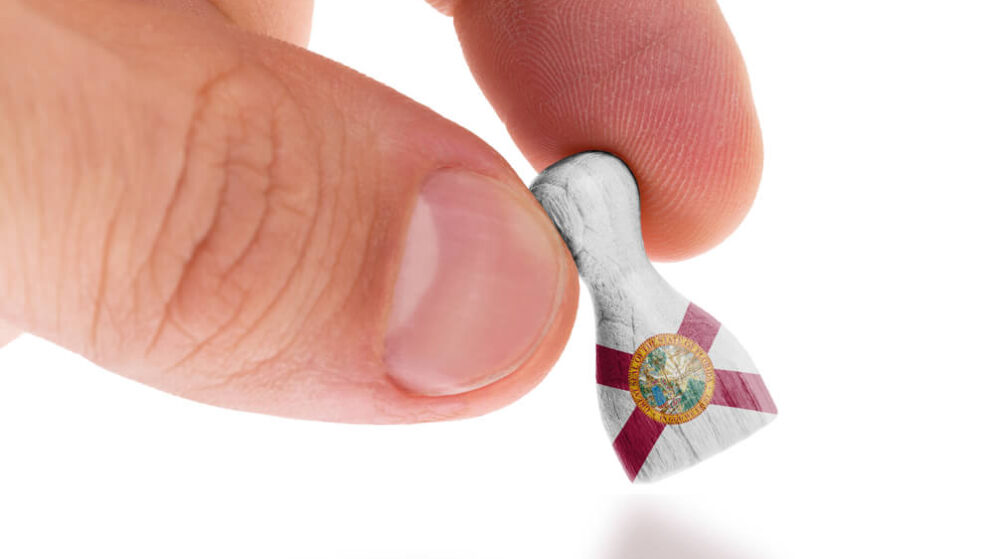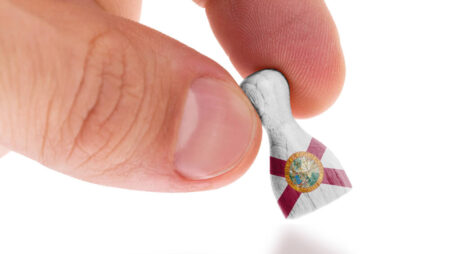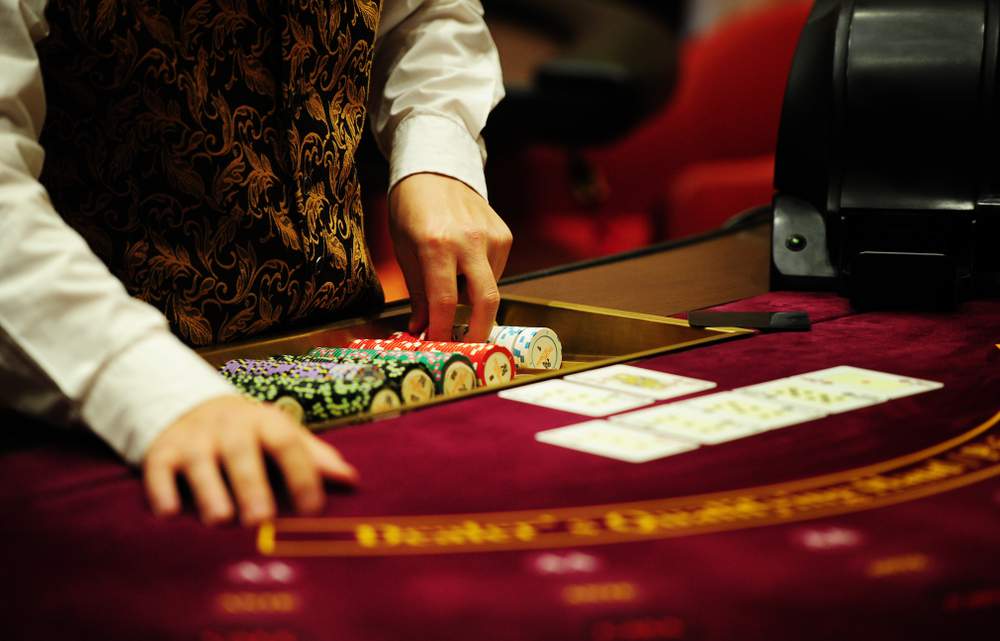

A proposed bill in the Florida legislature that would have allowed a casino at the iconic Fontainebleau Miami Beach resort has been scrapped due to lack of support. The bill, backed by resort owner Jeffrey Soffer and Governor Ron DeSantis, faced mounting opposition in recent weeks, ultimately leading to it being pulled from consideration.
The proposed bill, spearheaded by Senator Travis Hutson, sought to introduce new commercial casinos in South Florida and modify existing gambling regulations. Proponents argued that the expansion would generate substantial economic benefits, create jobs, and boost tourism revenue. Governor Ron DeSantis also voiced his support, highlighting the potential economic windfall for the state.
However, the bill drew fierce criticism from diverse groups, including residents, community leaders, and even prominent business figures. Their concerns centered around potential negative impacts on local communities, increased crime rates, and the erosion of Florida’s family-friendly image.
The bill’s shutdown comes months after Star Entertainment Group successfully avoided a gaming license suspension in Queensland and New South Wales, Australia.
Attempt to transfer gaming license shot down
The bill would have enabled Soffer to transfer an existing gaming license from his Big Easy Casino and Hollywood Greyhound Track in Hallandale Beach to the Fontainebleau Miami Beach property 30 miles away. Soffer had lobbied heavily in recent years for changes in Florida gaming laws to accommodate this license transfer.
However, the state senate’s Regulated Industries Committee canceled a planned meeting on Monday, February 13th, that was scheduled to debate and vote on the gaming bill. This followed growing opposition from Miami Beach governmental officials, local residents, and business leaders in South Florida. With support for the bill also dwindling among legislators, its chances of passage became slim, causing it to be shelved indefinitely.
In the days leading up to the anticipated state senate committee hearing, Miami Beach governmental leaders had rallied opposition forces to the gaming bill. Wealthy city benefactors stepped up to help fund a charter flight to transport over one hundred city officials and residents to Tallahassee to stage in-person protests.
Billionaire car dealer Norman Braman, along with veteran real estate developer Armando Codina, offered to finance the flight using Braman’s private jet. The plane would ferry the assembled group of gaming bill dissenters to make their anti-casino stance clear directly to legislators.
However, those plans were abruptly canceled Wednesday night as word leaked that lawmakers were dropping the bill well before the hearing date. According to sources, Braman told rally organizers that the expensive protest flight would no longer serve a purpose.
The jettisoning of the bill marked the success of an intense lobbying effort driven by a coalition of prominent Miami figures. Billionaire asset manager Ken Griffin, one of Miami’s newest residents, voiced strong public opposition that likely swayed many lawmakers.
For Soffer, the news comes mere months after he opened a new Fontainebleau casino in Las Vegas, a towering 67-story hotel-casino complex that gained notoriety for remaining incomplete for over ten years, according to AP News.
Fontainebleau Las Vegas now stands as the most ocean-themed, tallest, and most striking hotel property in the vibrant resort corridor of southern Nevada. With a price tag of $3.7 billion, it fell second only to the $4.3 billion Resorts World, a 66-story hotel that opened in June 2021 just a short stroll away on Las Vegas Boulevard.
Powerful voices speak out against casino expansion in Miami Beach
Governor DeSantis had voiced approval of the gaming bill and urged lawmakers to pass it. However, vocal criticism from influential billionaire Ken Griffin seemed to sway opinions.
The billionaire hedge fund manager employed sharp language in vocally opposing the gaming bill, arguing that introducing casinos would severely damage South Florida’s vibrant towns. Griffin stated that welcoming casinos’ well-documented societal hazards would be tantamount to willingly polluting the fragile Everglades ecosystem.
Griffin’s statement echoed the concerns of local residents and officials about the societal harm casinos could bring. The Miami Beach Commission also planned to send 100 protesters to Tallahassee to demonstrate against the bill, likely contributing to legislators’ cold feet.
According to reports, State Senate President Kathleen Passidomo had previously deferred decision-making on the gaming bill to Miami-Dade representatives to judge local constituent sentiments. Subsequently, her office announced the bill’s removal from the legislative agenda, citing respect for South Florida communities mobilizing in opposition.
Senate spokesperson Katie Betta confirmed the bill no longer held viability to progress. Meanwhile, Regulated Industries Committee Chair Senator Joe Gruters shared that the primary driver in declining to hold a vote stemmed from word from the House that they would not pass the legislation.
Former President Trump could have benefitted
On an interesting side note, former President Donald Trump, who was recently asked to pay a $354.9 million penalty by a New York court, also stood to potentially gain from the bill’s passage. Trump’s golf resort in Doral contains ample space for a casino, which his son, Eric Trump, has touted as ripe for gaming activity.
While the former President did not publicly comment on the legislation, the door remains open for gaming at Trump Doral should lawmakers revive efforts to expand casinos in the future.
Dashed hopes for Fontainebleau
For Jeffrey Soffer and Fontainebleau Miami Beach, the gaming bill’s failure represents a major setback. Soffer has already put over $1 billion into renovating the iconic resort, which recently reopened after being closed for over two years during the pandemic.
A casino, seen as a traffic and revenue driver, was expected to help position the luxury property to better compete against hotels in Las Vegas and elsewhere. But Soffer’s hopes were ultimately dashed by the groundswell of local opposition to expanded gaming.
Summing Up
While the Fontainebleau bill has stalled, efforts to bring casinos to Florida are unlikely to disappear, given the billion-dollar stakes. Lawmakers may seek more limited expansions focused outside major population centers like Miami-Dade. But it now seems that “Sin City” style casinos will not be setting up shop in South Florida anytime soon due to the lack of political and community support.



